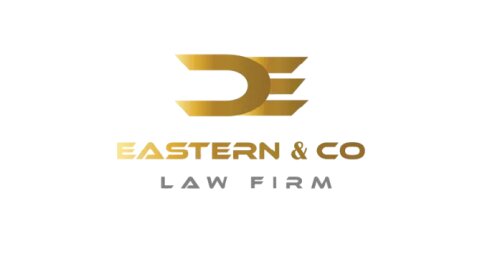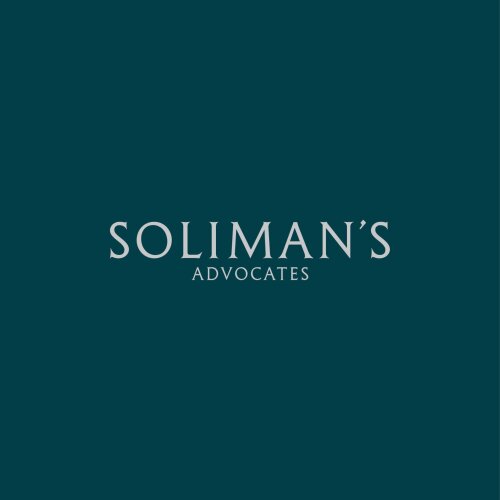Best Fintech Lawyers in Egypt
Share your needs with us, get contacted by law firms.
Free. Takes 2 min.
Or refine your search by selecting a city:
List of the best lawyers in Egypt
About Fintech Law in Egypt
Fintech, a blend of finance and technology, is an innovative sector that has seen remarkable growth in Egypt over recent years. With a thriving startup ecosystem and a large unbanked population, Egypt is well-positioned to become a hub for financial technology. The government has recognized this potential and has been actively working to create a supportive legal and regulatory framework. The Central Bank of Egypt (CBE) has been instrumental in this, launching initiatives and frameworks to guide and foster the sustainable growth of fintech in the country.
Why You May Need a Lawyer
Engaging a lawyer well-versed in fintech is crucial in various scenarios. Firstly, startup founders and entrepreneurs often require legal assistance for business formation, compliance, and intellectual property protection. Investors, too, may need legal guidance to navigate due diligence processes and investment agreements. Fintech companies must also comply with rigorous data protection and cybersecurity laws, making legal advice vital. Additionally, issues related to digital payments, licensing, and partnership agreements often necessitate legal intervention to ensure regulatory compliance and to mitigate risks.
Local Laws Overview
The regulatory landscape for fintech in Egypt is developing, with several key laws and regulations. The Central Bank and Banking Sector Law No. 194 of 2020 plays a significant role in regulating digital banking, payment systems, and fintech activities. Additionally, the Data Protection Law No. 151 of 2020 outlines the protection of personal data, emphasizing the importance of user consent and data security. The Anti-Money Laundering Law also affects fintech operations, requiring diligent processes to prevent illicit financial activities. Together, these regulations establish a framework that seeks to promote innovation while protecting consumers and maintaining financial stability.
Frequently Asked Questions
What is the current regulatory framework for fintech in Egypt?
The regulatory framework is shaped by the Central Bank and Banking Sector Law, alongside other policies covering data protection and anti-money laundering. Specific guidelines are often issued by the CBE to address emerging fintech activities.
Do fintech startups need a specific license to operate in Egypt?
Yes, depending on the nature of activities, such as digital payments or peer-to-peer lending, specific licenses from the CBE are required to ensure operations are in compliance with local laws.
How can startups secure investment legally in Egypt?
Startups can secure investment by complying with the regulations set by the Egyptian Financial Regulatory Authority (FRA) and ensuring proper legal documentation, such as term sheets and shareholder agreements, is prepared by legal professionals.
What are the penalties for non-compliance with fintech laws in Egypt?
Penalties can range from fines to the suspension of business operations, depending on the severity of the non-compliance. Data breaches and financial fraud carry particularly stringent penalties.
How does Egyptian law protect consumers in fintech services?
Consumer protection is addressed through various laws requiring transparency in fees, safeguarding personal data, and ensuring that consumers have recourse in cases of disputes or fraud.
Are there any incentives for fintech companies in Egypt?
The government offers several incentives, such as tax benefits and grants, to encourage innovations in fintech, especially those that enhance financial inclusion and digital economy growth.
What is the role of the Central Bank of Egypt in fintech regulation?
The CBE is the primary regulatory body overseeing fintech activities, setting operational guidelines, granting licenses, and ensuring system and data security within the financial sector.
Can foreign fintech companies operate in Egypt?
Yes, foreign companies can operate in Egypt, but they must adhere to local laws, which may require partnerships with local entities and obtaining necessary licenses from the CBE.
Is there a sandbox program available for fintech companies in Egypt?
The CBE has introduced a regulatory sandbox to provide a controlled environment where fintech companies can test innovative products and services without immediately incurring all the regulatory obligations.
How can fintech companies ensure compliance with Egypt's data protection laws?
Companies must implement robust data protection measures, obtain user consent for data processing, and align their operations with the requirements laid out in the Data Protection Law No. 151 of 2020 to ensure compliance.
Additional Resources
For further assistance, individuals and companies can consult with:
- Central Bank of Egypt (CBE): The primary authority on fintech regulations and licenses.
- Egyptian Financial Regulatory Authority (FRA): Offers resources related to financial regulations and investment guidelines.
- Data Protection Authority: Provides guidance on data protection and privacy requirements.
- Egyptian Information, Telecommunications, Electronics, and Software Alliance (EITESAL): An industry group providing networking and expertise for tech companies.
Next Steps
If you find yourself needing legal assistance in the fintech sector, the first step is to reach out to a reputable law firm specializing in fintech or business law. It is advisable to prepare a list of specific questions or concerns you have and any relevant documents related to your inquiry. Additionally, consider utilizing the regulatory sandboxes provided by authorities like the CBE to pilot innovative solutions under supervised conditions. Collaborating with local fintech associations or consulting groups can also provide valuable insights and support.
Lawzana helps you find the best lawyers and law firms in Egypt through a curated and pre-screened list of qualified legal professionals. Our platform offers rankings and detailed profiles of attorneys and law firms, allowing you to compare based on practice areas, including Fintech, experience, and client feedback.
Each profile includes a description of the firm's areas of practice, client reviews, team members and partners, year of establishment, spoken languages, office locations, contact information, social media presence, and any published articles or resources. Most firms on our platform speak English and are experienced in both local and international legal matters.
Get a quote from top-rated law firms in Egypt — quickly, securely, and without unnecessary hassle.
Disclaimer:
The information provided on this page is for general informational purposes only and does not constitute legal advice. While we strive to ensure the accuracy and relevance of the content, legal information may change over time, and interpretations of the law can vary. You should always consult with a qualified legal professional for advice specific to your situation.
We disclaim all liability for actions taken or not taken based on the content of this page. If you believe any information is incorrect or outdated, please contact us, and we will review and update it where appropriate.
Browse fintech law firms by city in Egypt
Refine your search by selecting a city.













